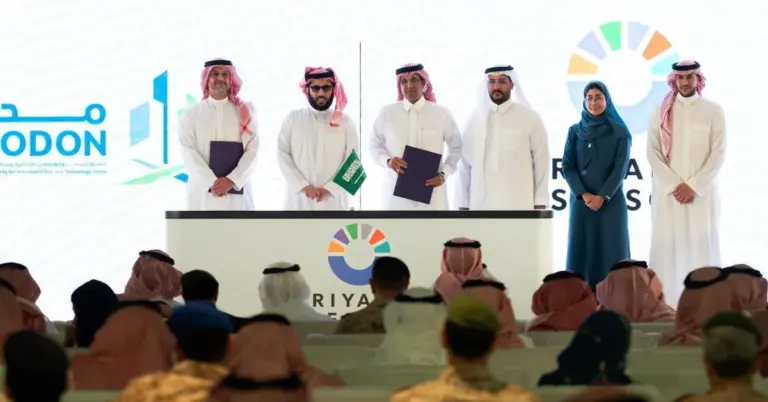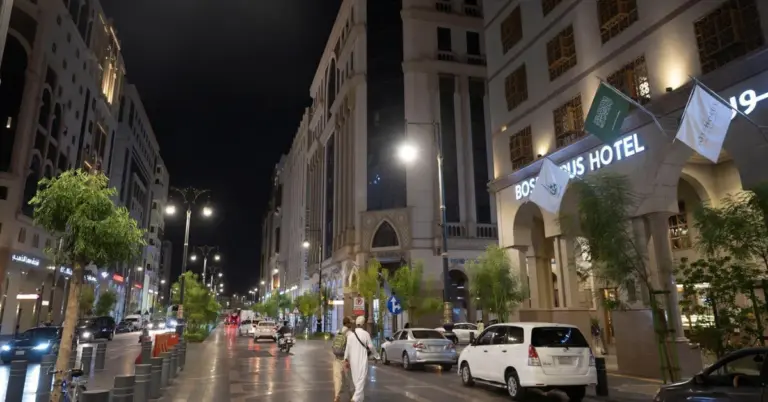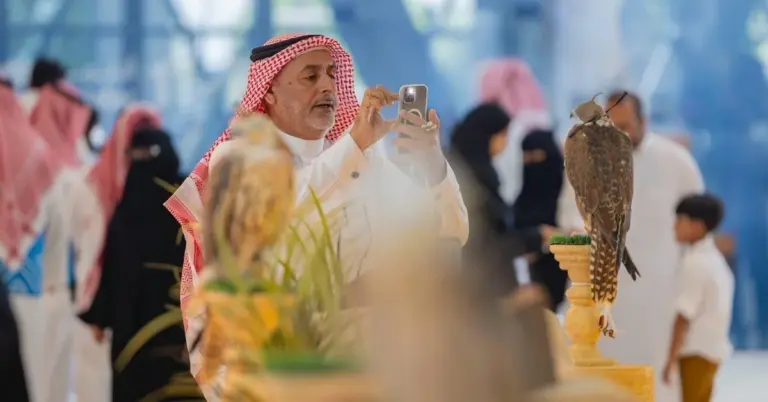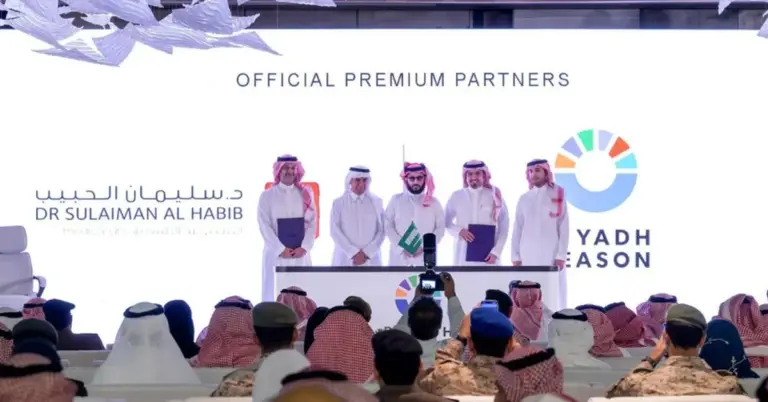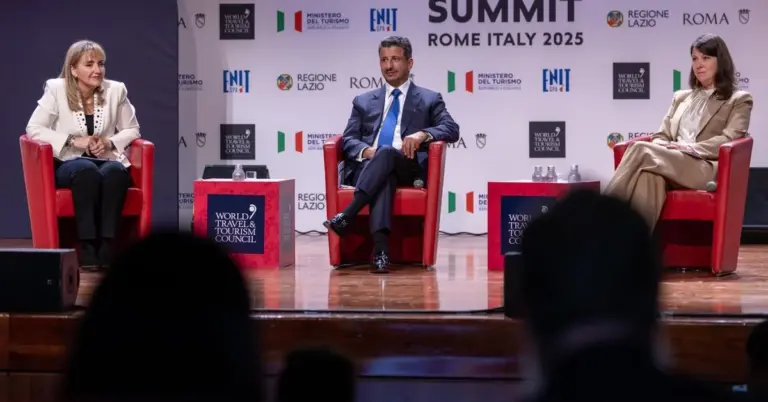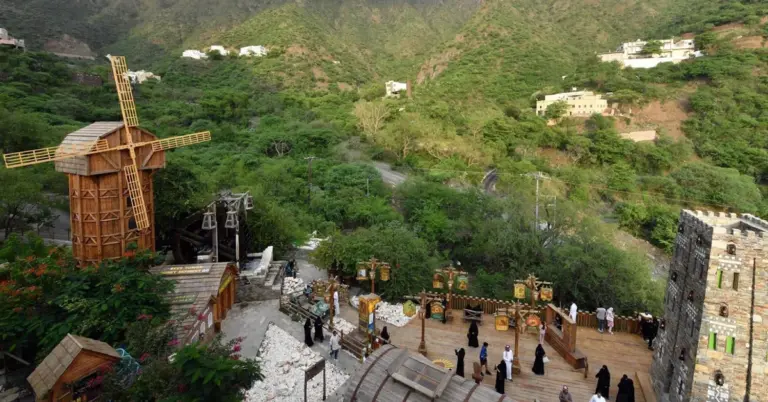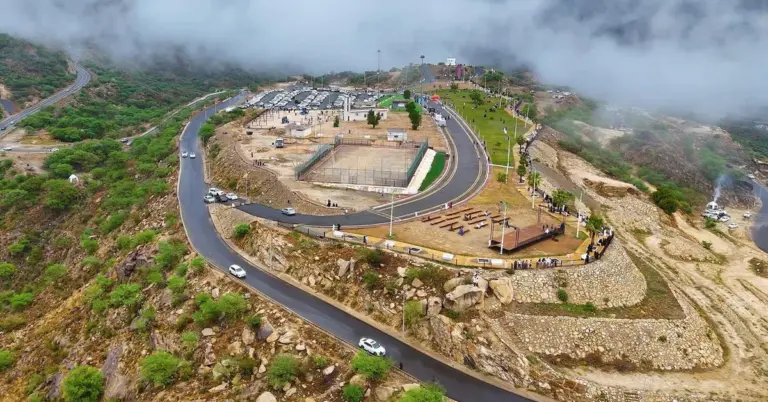**Headline:** Saudi Non-Oil Economy Hits 50% GDP
**Intro:** Saudi Arabia’s Cabinet, chaired by King Salman, highlighted progress on economic diversification, international cooperation, and interfaith dialogue. Key outcomes included a UN resolution against Islamophobia, support for Gaza initiatives, and a milestone with non-oil sectors contributing half of the GDP in 2023.
**Factbox:**
– **Date/Location:** March 20, 2024 | Jeddah
– **Key Agreements:** Cultural pacts (Turkey), halal product standards, air transport (Sierra Leone).
– **UN Resolution:** Backed measures to combat Islamophobia, appointed special envoy.
– **Economic Milestone:** Non-oil GDP hit 50% in 2023, aligning with Vision 2030.
– **Charity:** Fourth national campaign saw widespread donor participation.
**El Rey Salman preside la sesión del Consejo de Ministros: Avances estratégicos y compromisos globales**
*Jeddah, 20 de marzo de 2024* — Bajo el liderazgo del Custodio de las Dos Sagradas Mezquitas, el Rey Salman bin Abdulaziz Al-Saud, el Consejo de Ministros de Arabia Saudita celebró una sesión clave este martes en Jeddah, destacando logros nacionales, iniciativas humanitarias y acuerdos internacionales que refuerzan el rol del Reino en el escenario global.
—
### **1. Diálogo internacional y situación en Gaza**
El Consejo analizó las comunicaciones recibidas por el Príncipe Heredero Mohammed bin Salman, incluyendo un mensaje del presidente de Uzbekistán y una llamada del secretario general de la ONU, António Guterres, centrada en la crisis humanitaria en Gaza. Arabia Saudita reiteró su postura de apoyar soluciones diplomáticas para garantizar la estabilidad en la región y aliviar el sufrimiento de la población palestina.
—
### **2. Logros nacionales y fortalecimiento de relaciones**
El Ministro de Medios, Salman Al-Dossary, destacó los avances en sectores económicos, sociales y tecnológicos, resultado de las reformas impulsadas por Visión 2030. Además, se subrayó el compromiso del Reino por fortalecer lazos con países hermanos y aliados, promoviendo iniciativas que fomenten el desarrollo sostenible y la cooperación multilateral.
—
### **3. Lucha contra la islamofobia y promoción de la coexistencia**
El Consejo aplaudió la resolución de la ONU para combatir la islamofobia y la designación de un Enviado Especial en esta materia. Arabia Saudita reafirmó su estrategia para erradicar ideologías extremistas, cortar su financiación y promover el diálogo interreligioso, destacando su papel como sede de las Dos Sagradas Mezquitas y defensor de los valores islámicos moderados.
—
### **4. Conferencia de la Liga del Mundo Islámico en La Meca**
Se valoraron positivamente las conclusiones de la conferencia internacional organizada por la Liga, que reunió a líderes y académicos de distintas escuelas islámicas. El evento subrayó la importancia de la unidad entre musulmanes y reconoció los esfuerzos saudíes en facilitar peregrinaciones y preservar sitios sagrados.
—
### **5. Impulso al trabajo caritativo**
El éxito de la *Cuarta Campaña Nacional de Trabajo Caritativo* fue celebrado, con un récord de participación ciudadana y donaciones destinadas a educación, salud y ayuda a grupos vulnerables. Esta iniciativa refleja los valores de solidaridad arraigados en la sociedad saudí.
—
### **6. Hito económico: El sector no petrolero alcanza el 50% del PIB**
En un logro histórico alineado con Visión 2030, las actividades no petroleras contribuyeron con el 50% del PIB real en 2023. Este crecimiento diversificado, impulsado por sectores como turismo, tecnología y manufactura, consolida la transformación económica del Reino y reduce su dependencia de los hidrocarburos.
—
### **7. Acuerdos internacionales para cooperación estratégica**
El Consejo aprobó múltiples acuerdos con países como Turquía, Albania, Egipto y Sierra Leona, abarcando áreas como:
– **Cultura y justicia**: Cooperación en patrimonio cultural y formación jurídica.
– **Economía y pesca**: Alianzas para desarrollo pesquero con Argelia y Yibuti.
– **Seguridad y tecnología**: Memorandos en lucha antiterrorista y formación técnica.
– **Transporte aéreo y estándares halal**: Facilitación de conexiones y regulación de productos.
—
### **Conclusión: Un futuro integrado y sostenible**
La sesión reflejó el equilibrio entre las prioridades domésticas y el liderazgo global de Arabia Saudita. Desde el combate al extremismo hasta la diversificación económica, el Reino avanza con una agenda progresista que busca posicionarse como puente entre culturas y motor de estabilidad regional. Estos esfuerzos, respaldados por Visión 2030, consolidan su transformación hacia una sociedad dinámica y una economía resiliente.
**Palabras clave**: Visión 2030, Consejo de Ministros saudí, diversificación económica, islamofobia, cooperación internacional, trabajo caritativo.
*Este artículo fue elaborado con información oficial del Gobierno de Arabia Saudita.*
Here are 15 FAQs (each over 30 words) based on the Saudi Cabinet session highlights, addressing key themes and implications:
—
1. **What were the primary domestic and international agendas discussed during the March 20, 2024 Cabinet session led by King Salman, and how do they align with Saudi Arabia’s strategic priorities?**
2. **How did the Cabinet address the messages from Uzbekistan’s president and the UN Secretary-General regarding Gaza, and what actions might Saudi Arabia take in response?**
3. **What specific measures is Saudi Arabia implementing to combat Islamophobia following the UN resolution, and how do these tie into broader anti-extremism and peace-building efforts?**
4. **How will the appointment of a UN Special Envoy for Islamophobia strengthen global initiatives, and what role will Saudi Arabia play in supporting this position?**
5. **What key outcomes emerged from the Muslim World League’s Makkah conference, and how will they foster unity among Islamic sects and schools of thought?**
6. **In what ways did international scholars acknowledge Saudi Arabia’s role in maintaining the two holy mosques, and how does this reflect its leadership in the Islamic world?**
7. **What were the notable achievements of the Fourth National Charitable Work Campaign, and how does public participation reflect societal values of generosity in Saudi Arabia?**
8. **How does non-oil sectors contributing 50% to Saudi Arabia’s 2023 GDP demonstrate progress toward Vision 2030’s economic diversification and sustainability goals?**
9. **Which non-oil industries drove this economic milestone, and what policies are in place to ensure continued growth in these sectors?**
10. **What are the scope and objectives of Saudi Arabia’s cultural cooperation agreement with Turkey and its justice-focused memorandum with Albania?**
11. **How will Saudi Arabia’s fisheries agreements with Algeria and Djibouti enhance food security and economic collaboration in the region?**
12. **What are the anticipated benefits of the air transport agreement with Sierra Leone, and how does it align with Saudi Arabia’s aviation expansion strategy?**
13. **How do the halal product quality and counter-terrorism agreements approved by the Cabinet strengthen Saudi Arabia’s global trade and security partnerships?**
14. **What steps is Saudi Arabia taking through technical training agreements to develop skilled workforces domestically and in partner nations like Egypt?**
15. **How do the Cabinet’s recent international agreements collectively advance Saudi Arabia’s Vision 2030 goals in diplomacy, economic resilience, and global influence?**
—
These questions address the session’s geopolitical, economic, and social dimensions while emphasizing Saudi Arabia’s strategic initiatives under Vision 2030.
**CTA (Llamado a la Acción):**
¿Qué opinas sobre los avances de Arabia Saudita en diversificación económica y su papel global en la promoción de la tolerancia? ¡Comparte tus reflexiones en los comentarios y suscríbete para recibir las últimas actualizaciones sobre iniciativas clave bajo la Visión 2030!
**Conclusión:**
La sesión del Consejo de Ministros subraya el compromiso de Arabia Saudita con un futuro diversificado, sostenible y conectado globalmente. Desde hitos económicos históricos hasta esfuerzos diplomáticos contra la islamofobia y el extremismo, el Reino continúa alineando sus acciones con la Visión 2030, reforzando su liderazgo en la escena internacional. Estos pasos no solo reflejan una transformación nacional, sino también una contribución activa a la estabilidad global y al diálogo intercultural.
**Agradecimiento:**
Gracias por leernos. Síguenos para mantenerte informado sobre las iniciativas de Arabia Saudita y su impacto en el mundo.
#Vision2030 #ArabiaSaudita #CooperaciónGlobal #Tolerancia #DesarrolloEconómico
*(Nota: Adapta los hashtags según la audiencia y plataforma de publicación).*


